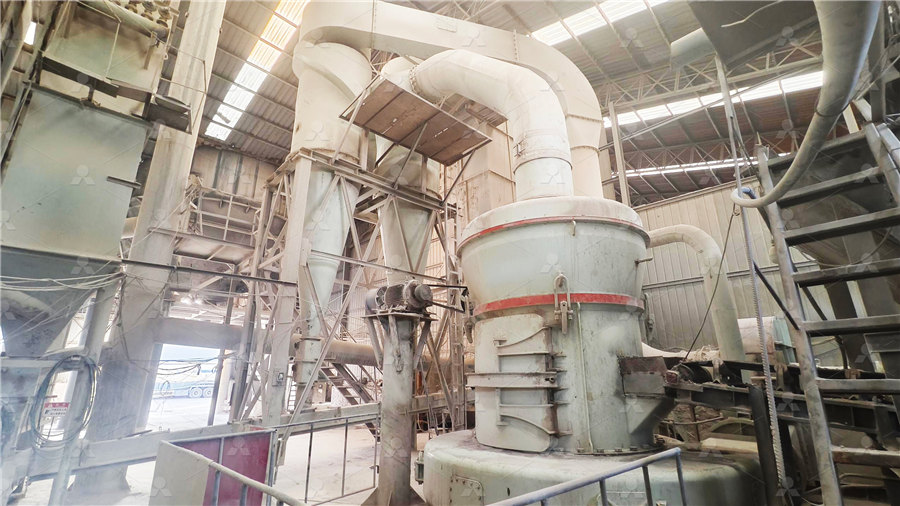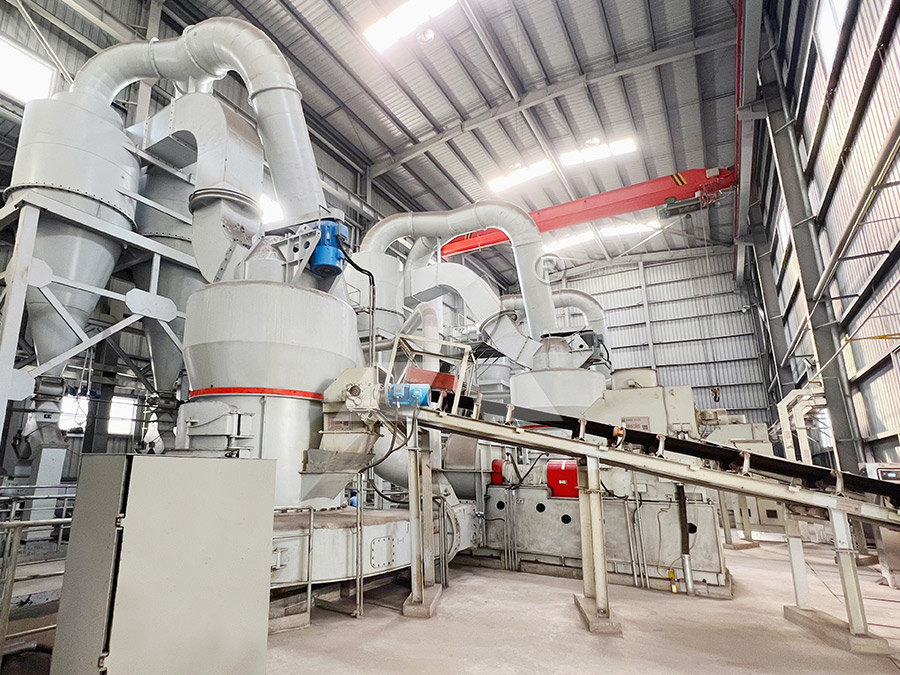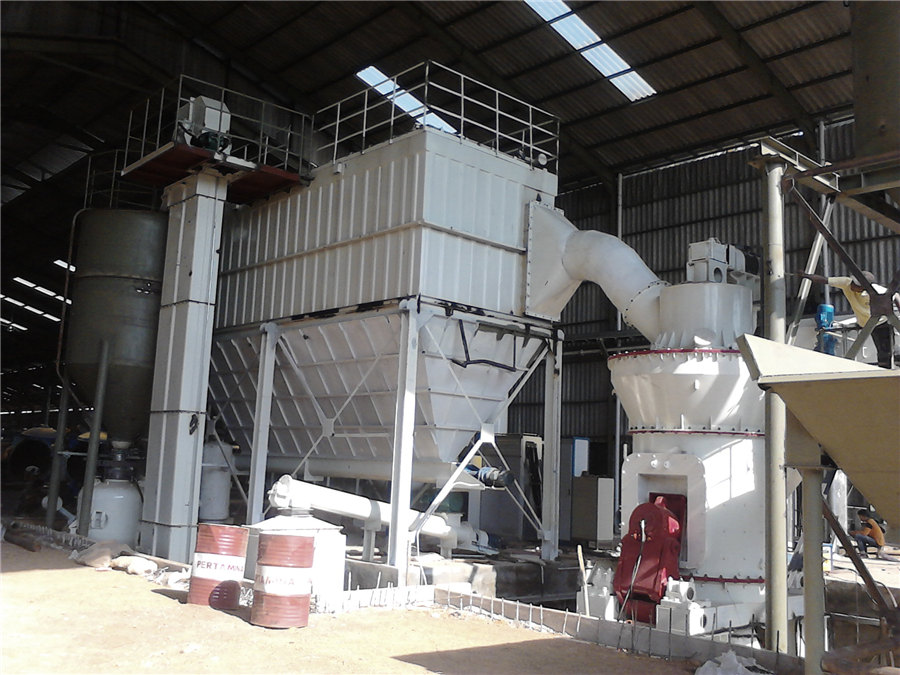
where there is a large demand for high calcium powder in the BeijingTianjinHebei region
.jpg)
Balancing water and food by optimizing the planting structure in
2022年3月31日 S2 could meet food demand and neutralize groundwater depletion from agriculture Wheatselfsufficiency and proper surpluses of vegetable/fruit are alternatives The 2023年4月1日 Supply and demand for ecosystem services are in deficit in most regions Ecosystem services flow occur mainly in areas of high ecosystem services value An Ecological compensation in the BeijingTianjinHebei region based Forecasting the supply and demand of water resources in the BeijingTianjinHebei region under different scenarios from 2016 to 2030, according to the forecast results, extracting theResearch on supply and demand balance of water resources in 2023年12月8日 The regional comparison of ET 0 in the three subareas shows that the overall increase in ET 0 in Hebei is the largest, followed by that in Tianjin, with the smallest being in the Beijing area The main reason for this result is Climate Change Impacts on Agricultural and Industrial
.jpg)
Water scarcity will constrain the formation of a worldclass
2021年3月25日 China has set an ambitious goal of developing a worldclass megalopolis in the waterscarce BeijingTianjinHebei (BTH) region This study investigates the water challenge 2024年3月16日 However, there is a significant spatial imbalance of carbon sinks in the Beijing–Tianjin–Hebei Region, and there is still an urgent need for a large amount of spatial resource inputs to improve the carbon sinks and meet Differentiation of Carbon Sink Enhancement Potential 2012年3月7日 One region that is in transition and requires systematic research for effective intervention is the dry landscape of BeijingTianjin (P R China) We investigated the sources Sources and Pathways of Nutrients in the SemiArid Region of 2024年7月1日 Our empirical investigation in the BeijingTianjinHebei region, utilizing the SuperSBM and extended STIRPAT models, reveals upward trends in carbon emission efficiency, Carbon emission efficiency and regional synergistic peaking
.jpg)
Impacts of Climate Change on Ecological Water Use in the Beijing
2024年1月17日 The Beijing–Tianjin–Hebei region in China is experiencing a serious ecological water scarcity problem in the context of climate warming and drying There is an urgent need 2023年7月1日 Climate change is an important environmental issue (Li et al, 2020)With the rapid economic growth, the demand for fossil energy is increasing sharply and has become the largest factor accelerating global warming (Meng et al, 2017)Global warming, sea level rise, and more frequent extreme climate events greatly challenge the sustainable development of Mapping the spatialtemporal changes in energy consumption 2024年7月1日 Specifically, under the scenarios set in this study, the BeijingTianjinHebei region as a whole is expected to achieve carbon peak between 2035 and 2045, with peak emission levels ranging from 912 to 979 Mt Beijing's carbon peaking is anticipated to occur around 2025, with a projected range of 113–115 Mt Tianjin's carbon peaking is estimated between 2035 Carbon emission efficiency and regional synergistic peaking 2023年9月27日 To this end, taking the Beijing–Tianjin–Hebei region in China from 2009 to 2019 for example, this paper employs the differenceindifferences model to explore the effect of the implementation of the Policy on carbon emissions reduction in the BTH region Our main conclusions are as followsDid regional coordinated development policy mitigate carbon
.jpg)
Carbon Emission Projection and Carbon Quota Allocation in the Beijing
2023年10月26日 Supported by the coordinated development strategy, the Beijing–Tianjin–Hebei (BTH) region has achieved rapid development but also faces severe energy consumption and environmental pollution problems As the main responsibility of emission reduction, the coordinated and orderly implementation of carbon emission reduction in Beijing, Tianjin, and 2021年10月27日 China accounts for 25% of the global greening There are temporal and spatial differences of China’s greening and intrinsic driving forces Thus, it is crucial to determinize the contributions Determinizing the contributions of human activities and 2021年7月1日 The total CS of each raster unit on the basis of the raster of land use in the Beijing–Tianjin–Hebei region and the average carbon density of carbon pools for each land use type were determined using this module The carbon density (Table 4) refers to Wang et al (2019) calculation of the Beijing–Tianjin–Hebei regionUnderstanding tradeoffs and synergies of ecosystem2024年10月15日 Globally, the spatial pattern of human activities has crossed over into the predominantly urban era As one of the most significant socioeconomic phenomena today, urbanization, while improving human wellbeing, is posing threats to the ecological environment, such as resource scarcity, land degradation, and environmental pollution, which reduce the Coupling coordination between urbanization and ecosystem

Energy efficiency of the industrial sectors in BeijingTianjinHebei
2022年3月8日 As the political and technological innovation center of China, BeijingTianjinHebei urban agglomeration (BTHUA) is an important engine of national economic development However, the BTHUA is faced with uneven industrial development and environmental pollution problems Energy efficiency of the industrial sector, critical to energy conservation and 2021年3月25日 The BTH region comprises two municipalities (ie, Beijing and Tianjin) and eleven prefecturelevel cities in Hebei Province The county is usually the basic scale for official statistics and political decisions in China, and there are 202 counties with an average area of 1071 km 2 in the BTH region ( Yang et al, 2019 )Uncovering the relationships between ecosystem services and 2016年9月1日 The BeijingTianjinHebei region is the largest economic and most dynamic region in terms of its economy in northern China, and is also the location of Beijing City, the capital of China This region is currently undergoing rapid urbanization, with an average urban population growth rate of 351% from 2000 to 2012Spatial identification of multifunctional landscapes and 2023年11月10日 The BeijingTianjinHebei urban agglomeration, situated in the North China Plain (Fig 1), represents a typical agricultural region and is among the most rapidly developing urban clusters in China in terms of cities and economic growth Understanding the intricate tradeoffs among ecosystem services in
.jpg)
Waterlogging risk assessment of the BeijingTianjinHebei urban
2021年6月12日 The risk of urban waterlogging is increasing with global climate change and rapid urbanization, especially for urban agglomeration like BeijingTianjinHebei (BTH) region In this study, we obtain the urban waterlogging risk index of the BTH urban agglomeration and considering the hazard, exposure, and vulnerability factors, we assess waterlogging risks in 2021年1月13日 China is implementing intensive policies on electric vehicles to control air pollution in urban regions, especially the Beijing–Tianjin–Hebei (BTH) region, one of the most polluted areas in China The development of electric Impact of the Electric Vehicle Policies on 2024年1月17日 The Beijing–Tianjin–Hebei region in China is experiencing a serious ecological water scarcity problem in the context of climate warming and drying There is an urgent need for practical adaptation measures to cope with the adverse impacts of climate change and provide a scientific basis for urban water supply planning, water resource management, and policy Impacts of Climate Change on Ecological Water Use in the Beijing 2021年9月3日 The regional distribution of its change rate showed that Beijing and Tianjin had the most significant increase in the HWDI (Figure 3f) Among them, Beijing Tongzhou, Tianjin Xiqing and Beijing Changping had the largest increases, reaching 154d/10a, 149d/10a and 135d/10a, respectively, while the regional HWDI change rate was 056d/10aResponses of extreme high temperatures to urbanization in the Beijing
.jpg)
The highquality development in BeijingTianjinHebei regions:
2022年1月1日 From the perspective of horizontal development, the highquality development of BeijingTianjinHebei region is significantly unbalanced, and the comprehensive index of highquality development in Beijing is significantly higher than that in Tianjin and Hebei, demonstrating a large gap in highquality development among Beijing and the other two regions2021年1月27日 W ater demand in the Beijing–Tianjin–Hebei region for the next two years was further predicted It is difficult to obtain the relevant explanatory variables in a timely manner and(PDF) Water Demand Prediction Using Machine Learning Methods2023年12月8日 As a politically and culturally important city cluster, the Beijing–Tianjin–Hebei (BTH) region is the most prominent area in China where the imbalance between the supply and demand of water resources restricts the sustainable and healthy development of the regional social economy In the context of global warming, research into water demand prediction that Climate Change Impacts on Agricultural and Industrial Water Demands 2022年8月23日 1 State Key Laboratory of Urban and Regional Ecology, Research Center for Ecoenvironmental Sciences (CAS), Beijing, China; 2 School of Ecology and Nature Conservation, Beijing Forestry University, Beijing, China; Assessing the spatiotemporal patterns of ecosystem services (ESs) supply and demand, as well as the drivers thereof during specific Drivers of spatiotemporal disparities in the supplydemand

How does digital technology empower urban green development
2022年11月30日 Under the strategy of “Digital China” and “Sustainable Development,” the synergistic development of digital economy and green economy has become a crucial topic Based on the panel data of 13 cities in the BeijingTianjinHebei (BTH) region from 2011 to 2019, this study investigates the direct effect, intrinsic mechanism, and spatial spillover effect of Keywords: PM 25 concentrations, aerosol optical depth, twostage statistical regression model, spatiotemporal distribution, Beijing–Tianjin–Hebei region, Tianjin–Hebei region Citation: Yang X, Xiao D, Bai H, Tang J and Wang W Spatiotemporal Distributions of PM 25 Concentrations 2016年12月17日 To address this gap, we sought to develop a more comprehensive approach coupling ecosystem services supply and human ecological demand to construct LESP for Beijing–Tianjin–Hebei region We proposed a new evaluation framework integrating ecosystem services importance assessment and landscape connectivity analysis with human ecological Coupling ecosystem services supply and human ecological demand 2020年9月1日 G (η) is the ηyear GDP of the BeijingTianjinHebei region(100 million yuan) P (η) is the total population of the ηth year in the BeijingTianjinHebei region(Ten thousand people) 2) Policy factor The stable and orderly promotion of electric energy substitution cannot be separated from scientific and reasonable policies and measuresStudy on the forecast model of electricity substitution potential
.jpg)
Urban Sprawl and Changes in LandUse Efficiency in the Beijing
2021年7月21日 Sustainable development in urban areas is at the core of the implementation of the UN 2030 Agenda and the Sustainable Development Goals (SDG) Analysis of SDG indicator 1131—Landuse efficiency based on functional urban boundaries—provides a globally harmonized avenue for tracking changes in urban settlements in different areas In this study, 2023年2月20日 Rapid economic development and human activities have severely affected ecosystem function Analysis of the spatial distribution of areas of rapid urbanization is the basis for optimizing urbanecological spatial design This paper evaluated the spatial distribution of urbanization in the BeijingTianjinHebei (BTH) region, and then quantified the ecosystem Multiscale coupling analysis of urbanization and ecosystem 2022年10月3日 Industrial agglomeration is a highly prominent geographical feature of economic activities, and it is an important research topic in economic geography However, mechanismbased explanations of industrial agglomeration often differ due to a failure to distinguish properly between the spatial distribution of industries and the stages of industrial agglomeration Based Influencing factors of manufacturing agglomeration in the Beijing 2020年4月11日 Study area The Yongding River has been honored as the “Mother Water of Beijing (capital of China)” Its watershed in BTH region is located in the Hai River Basin, with an area of 21,690 km 2, including Beijing (3189 km 2), Tianjin (321 km 2), and Municipalities and Hebei (18,180 km 2) Province (Fig 1)The annual average precipitation ranges from 401 mm a Evaluating water resource sustainability from the perspective of
.jpg)
Building a greener future: Understanding the spatial effects of eco
2023年12月1日 The spatially high concentration areas are concentrated in the western and northern regions of the BeijingTianjinHebei region, close to the Yanshan and Taihang Mountains Low and lowaggregation areas are concentrated in the central and eastern plains of population urban centers, and the central urban areas have a significant siphon effect2020年9月25日 This study investigates the different impacts of coordinated development in the Beijing–Tianjin–Hebei (BTH) region on industrial energy and pollution intensities based on the differenceindifference (DID) method and the quantile DID method The panel data cover industrial energy consumption and three wastes, which are industrial wastewater, sulfur The Roles of BeijingTianjinHebei Coordinated Development2023年2月27日 In China, road traffic carbon emissions and their share in total carbon emissions have significantly increased In the context of double carbon, the BeijingTianjinHebei region, the largest urban agglomeration in northern China, is receiving more and more attention Due to the unbalanced development in BeijingTianjinHebei urban agglomeration, this thesis presents Predicting of motor vehicle carbon emissions and spatiotemporal 2023年7月1日 Climate change is an important environmental issue (Li et al, 2020)With the rapid economic growth, the demand for fossil energy is increasing sharply and has become the largest factor accelerating global warming (Meng et al, 2017)Global warming, sea level rise, and more frequent extreme climate events greatly challenge the sustainable development of Mapping the spatialtemporal changes in energy consumption
.jpg)
Carbon emission efficiency and regional synergistic peaking
2024年7月1日 Specifically, under the scenarios set in this study, the BeijingTianjinHebei region as a whole is expected to achieve carbon peak between 2035 and 2045, with peak emission levels ranging from 912 to 979 Mt Beijing's carbon peaking is anticipated to occur around 2025, with a projected range of 113–115 Mt Tianjin's carbon peaking is estimated between 2035 2023年9月27日 To this end, taking the Beijing–Tianjin–Hebei region in China from 2009 to 2019 for example, this paper employs the differenceindifferences model to explore the effect of the implementation of the Policy on carbon emissions reduction in the BTH region Our main conclusions are as followsDid regional coordinated development policy mitigate carbon 2023年10月26日 Supported by the coordinated development strategy, the Beijing–Tianjin–Hebei (BTH) region has achieved rapid development but also faces severe energy consumption and environmental pollution problems As the main responsibility of emission reduction, the coordinated and orderly implementation of carbon emission reduction in Beijing, Tianjin, and Carbon Emission Projection and Carbon Quota Allocation in the Beijing 2021年10月27日 China accounts for 25% of the global greening There are temporal and spatial differences of China’s greening and intrinsic driving forces Thus, it is crucial to determinize the contributions Determinizing the contributions of human activities and

Understanding tradeoffs and synergies of ecosystem
2021年7月1日 The total CS of each raster unit on the basis of the raster of land use in the Beijing–Tianjin–Hebei region and the average carbon density of carbon pools for each land use type were determined using this module The carbon density (Table 4) refers to Wang et al (2019) calculation of the Beijing–Tianjin–Hebei region2024年10月15日 Globally, the spatial pattern of human activities has crossed over into the predominantly urban era As one of the most significant socioeconomic phenomena today, urbanization, while improving human wellbeing, is posing threats to the ecological environment, such as resource scarcity, land degradation, and environmental pollution, which reduce the Coupling coordination between urbanization and ecosystem 2022年3月8日 As the political and technological innovation center of China, BeijingTianjinHebei urban agglomeration (BTHUA) is an important engine of national economic development However, the BTHUA is faced with uneven industrial development and environmental pollution problems Energy efficiency of the industrial sector, critical to energy conservation and Energy efficiency of the industrial sectors in BeijingTianjinHebei 2021年3月25日 The BTH region comprises two municipalities (ie, Beijing and Tianjin) and eleven prefecturelevel cities in Hebei Province The county is usually the basic scale for official statistics and political decisions in China, and there are 202 counties with an average area of 1071 km 2 in the BTH region ( Yang et al, 2019 )Uncovering the relationships between ecosystem services and
.jpg)
Spatial identification of multifunctional landscapes and
2016年9月1日 The BeijingTianjinHebei region is the largest economic and most dynamic region in terms of its economy in northern China, and is also the location of Beijing City, the capital of China This region is currently undergoing rapid urbanization, with an average urban population growth rate of 351% from 2000 to 2012













